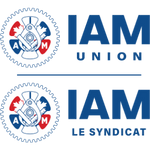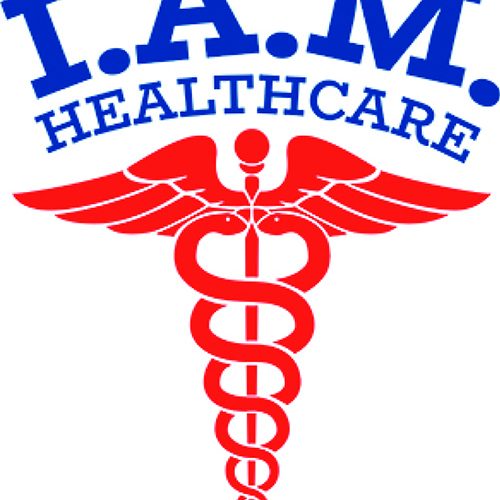To all IAM Healthcare Members: Position Statement on COVID-19 for IAM Healthcare Members
While the risk of contracting COVID-19, or the Coronavirus for the general public is low as indicated by Health Canada, IAM members in healthcare work with highly vulnerable populations to COVID-19. The wellbeing of our members is of utmost importance, so as a precautionary measure, we are issuing a set of guidelines that will help protect our members from the spread of COVID-19. Below you will find guidelines for members, and requirements for employers, which business reps should be aware of and advocate for. Given that COVID-19 has several modes of transmission, we are in full support of the highest protective measures for our members.
It is imperative that workers have training and access to appropriate personal protective equipment (PPE) when working in close contact with residents and patients. PPE comes in the form of gloves, impermeable gowns, masks, including the NIOSH N-95 respirator masks for those working with suspected or confirmed cases of the virus. With respect to the N-95 mask, workers who work with suspected cases of COVID-95 should undergo a fit test and be trained on its use. The N-95 mask is designed to protect against 95% of airborne particulates when tested against a 0.3 micron particle, and should be used at a minimum.
We also advocate for the “precautionary principle” as a guiding basis for employer policies, usage of PPE, including at the level of work engineering, administration and the worker level. Health and safety committees must be part of the process of developing policies, training plans, and in dissemination of the information.
Given that the virus is in the early stages of spreading, and all information about the virus is not yet fully known, the IAM believes employers should err on the side of caution and apply the precautionary principle in all matters pertaining to health and safety or workers, and clients. The precautionary principle is the foundation for policy when it has to deal with weakly understood causes of potential catastrophic or irreversible events, and where protective decisions require certain and costly policy interventions that may not solve the problem that they are designed to correct. As such, this principle provides a rationale and legal basis for actions taken, even when scientific information is incomplete or unavailable. It is the highest ethical and moral standard in circumstances such as these, and we urge employers to abide by this standard.
Worker Responsibilities:
- When ill stay home. If symptoms do not improve over a couple of days, call your doctor’s office instead of visiting in person, contact the provincial public health agency, your business rep, general chairperson and the Canadian office.
- Follow handwashing protocols issued by Health Canada and the Canadian office
- Wear PPE if there is a possibility of exposure to COVID-19
- Use required droplet, contact and additional airborne precautions such as (but not limited to): gloves, goggles, gowns, face shields, and respirators
- Ensure a point-of care risk assessment has been conducted prior to an interaction with a client
- Avoid touching your eyes, nose and mouth with hands to prevent self-contamination; clean your hands before contact with any part of the body.
- Avoid contact between contaminated gloves/hands and equipment and the face, skin or clothing when removing PPE.
- Be familiar with the right to refuse dangerous work guidelines and legislation. If you think you your employer is exposing you to unsafe working circumstances, consult your business rep and your health and safety representative for guidance.
- Know your rights, collective agreement and workplace policies
- Follow existing workplace infection control measures and policies, if any are in place
- Stop if you do not have the required personal protective equipment or properly fitted respiratory protection, and/or have not been trained, drilled and tested in its care, use and limitations, and speak with your manager or supervisor; document the situation and copy your union and your H&S Committee representative.
- Report any health and safety concerns, including gaps in adequate protocols and procedures and/or communications, access to PPE, fit-testing and/or training or other health and safety concerns to your manager or supervisor, copying your H&S Committee and your union.
Homecare members:
- In addition to above specified guidelines, please also ensure that you are provided with enough PPE supplies for the day
- Clean surfaces in the client’s home which you will have contact with
- Dispose of gloves, clean PPE thoroughly after leaving the clients home
Employer Responsibilities
- Work with Health and Safety committees to develop measures, procedures, policies and training pertinent to COVID-19
- Ensure workers are properly trained and aware of procedures, protocols, and policies
- Review and update existing institutional pandemic plans
- Ensure PPE is readily available for workers who work with suspected cases of COVID-19 and that they are fit-tested for the N-95
- For those who have been fit-tested for the N-95 mask, ensure they are wearing identification of the size for the mask
- Conduct a comprehensive risk assessment
- Ensure isolation measures are in place for clients exhibiting symptoms
- Where applicable, ensure suitable structural barriers exist
- Ensure sufficient staffing is available to manage a possible outbreak in the workplace
- Implement cleaning protocols for all PPE, fit-tested N-95, face shields, gloves, impermeable gowns, head and foot protection and waste disposal protocols
- Ensure staff are using disposable equipment, while residents may use non-disposable equipment
We are continuously monitoring updated from Health Canada and the Public Health Agency of Canada for updates, and will continue to issue information as it becomes available to us. For additional information you may visit the following websites;
Health Canada website with daily updates:
https://www.canada.ca/en/public-health/services/diseases/2019-novel-coronavirus-infection.html
Public Health Ontario:
https://www.publichealthontario.ca/en/diseases-and-conditions/infectious-diseases/respiratory-diseases/novel-coronavirus
Additional Factsheets:
https://www.canada.ca/en/public-health/services/diseases/2019-novel-coronavirus-infection/awareness-resources.html
Stay healthy, safe and practice common sense. Protecting your health also protects the health of others.
In solidarity,
Stan Pickthall,
GVP- Canada



